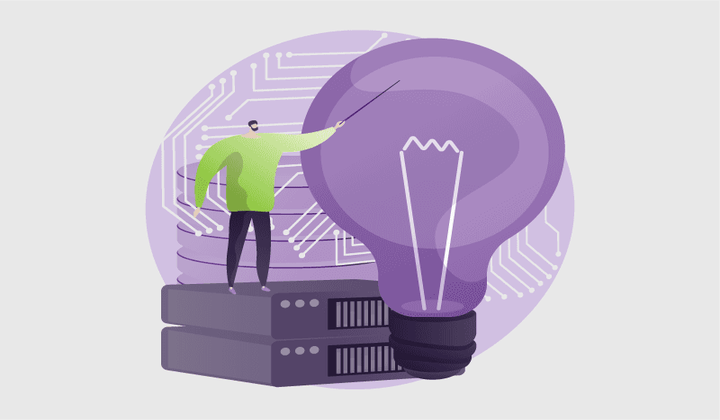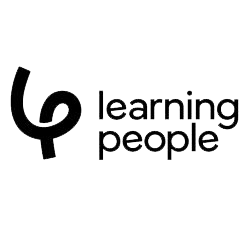Data Analysts: What Do They Do, and Why Are They In Demand?
Published on March 30, 2021
Data analysts make it make sense. Make what make sense, you might ask? Well… everything.
From numbers, to words, to images, almost anything can be considered data. Data analytics is a type of data science that aims to find the patterns, correlations or relationships in the data and analyse their meaning. They then use these insights to answer some big questions and inform some big business decisions.
What is data analysis?
Data-driven analytics is becoming increasingly important across all industries. Why? It allows companies to make more informed decisions. These decisions are based on the insights data analysts deduce from large sets of raw data, that otherwise would be pretty useless to the untrained eye.
“Put as simply as possible,” says data analyst Jesse Peterson, “The role of a data analyst is to take abstract information and transform it into usable information.”
A data analyst’s work can:
- Help create targeted content to the right customer group
- Optimise productivity and opportunities for improvement
- Ensure more objective decision-making takes place
- Help people innovate and explore with purpose
Data analyst responsibilities
“Data analysts take endless rows of seemingly random dates, numbers and dot points, then convert them into easily readable forms, such as graphs, charts, tables and dashboards,” Jesse explains.
To break it down a little more, the data analysis process generally follows these five steps:
Identify
Collect
Clean
Analyse
Report
1. Identify the data, define the question
What question are you trying to answer? What do you need to ask to make sure the right data is chosen to answers questions like:
- What are we doing well?
- What are we doing poorly?
- What are our opportunities for improvement?
- What trends are we seeing?
- Why has x changed?
2. Collect the data
Data collection can occur via a wide range of places, however, some common sources include:
- Surveys
- Website visitor tracking
- Buying datasets from collection specialists
3. Clean the data
Although often very accurate, computers aren’t perfect, so, cleaning data is essential. This means sifting through large datasets and making sure only relevant information remains.
4. Analyse the data
There are four main types of data analyses methods that you’ll use throughout your data analyst career:
- Descriptive
Describes the features of the data set so you can better understand how you should move forward.
- Diagnostic
Helps you find out why something has happened —- what are the correlations between values in the data
- Predictive
Uses past data trends to understand current or possible future trends in the data. Predictive analytics uses techniques from data mining, such as using data models, algorithms and machine learning techniques to make predictions about possible future events. - Prescriptive
Informs future decisions and course of action based on the trends found in the data. Often, this is reached with the help of machine learning techniques.
5. Report the results to stakeholders
Now that you have found the answers or at least, possible answers to the questions you defined in step one, you need to report it. This means putting your analyses into an understandable format so you can inform all and any stakeholders of your findings and advise them on how to move forward.
A day in the life of a data analyst
Jesse executes on these responsibilities in his day-to-day role in a marketing company:

A normal day in my life as a data analyst is going to be broken up into three key activities: briefing, research and presentation.
The first of these activities, briefing, is the simplest. I meet with a co-worker or stakeholder who has a question that they would like answered. Perhaps they would like to know how effectively our business appeals to different demographics, or perhaps they would like to know-how innovations in our business are being received by our clients.
Regardless of what it is, they have an abstract question, and my role is to take this abstract question, break it down and devise a way to answer it empirically using data.
This brings me to the second activity, research, which takes by far the largest amount of my time. I obtain all relevant data to the question at hand, then use my skills, knowledge and technology to break down this data and find out what it is really telling us.
Finally, the most often overlooked — yet extremely important — step: presentation. Improperly presented data can be misleading and deceiving. So, I work to present the data and my findings in a way that is as clear, concise and accurate as possible.
When this is ready, I once again meet with the one who initially came to me with the question. I explain my findings and do everything in my power to answer their initial question.
What do data analysts do in different industries?
Data analysts can work in a range of environments. Like any role, a data analyst’s job description will change depending on which industry you work in and whether you’re an entry-level or senior data analyst. Each industry will have its nuances, its challenges, and specific flow of operations.
Though used to mainly work in investment banks and private equity firms. But now that data is a valuable resource in almost all Australian industries, you can find them working in:
- Marketing
- Healthcare
- Retail
- Insurance
- Technology
Some unique and exciting data analyst career opportunities include:
Business intelligence analyst
A business analyst mostly works with data metrics related to business activities, such as:
- Sales
- Revenue
- Customer engagement
- Market information
You’ll focus on improving a business’ market activities and boosting their revenue, while growing authentic customer engagement. You’ll report your findings to key stakeholders so they can make informed business decisions.
Operations analyst
You’ll most likely be a part of a company’s operations team, and work closely with the operations manager. You’ll focus on finding data-informed strategies to help improve workflow and efficiency of internal business operations.
Transport Logistics Specialist Data Analyst
Here, you’ll use your data analyst skills to optimise how a business can store, transport and deliver large scale quantities of goods.
You’ll be relied upon to find the best paths and methods for products to be delivered, avoiding and problem-solving logistical nightmares like bottlenecking.
Medical and healthcare analyst
In this industry, you’ll work with medical data management systems to compile health care data. This data can be from a medical clinic’s expenses through to patient diagnoses. You’ll be in charge of controlling expenditure, finding ways to assist in providing optimal health care and improving patient experiences.
Data analyst skills
Being a good data analyst means you’ll need a strong blend of both hard and soft skills.
Your technical knowledge is essential to complete the analysis aspect of the role. Some critical skills you’ll need to have under your belt include:
- Using database tools such SQL and Microsoft Excel
- Understanding programming languages like Python or R
- Data visualisation through programs like Tableau or Jupyter Notebook
- A firm grasp of higher level maths and statistics
This is because you’ll be expected to present and justify your work to key stakeholders in an understandable and effective way. You’ll also want to develop strong:
- Critical thinking techniques
- Problem-solving skills
- Analytical skills
Who suits this kind of role?
“A person who enjoys a bit of number crunching, who prefers to work independently, and comes at problems with a critical eye” Jesse says.
However, he also warns that, “Trying to understand all types of information that are being collected can be overwhelming, let alone finding and extracting the very specific data you need.”
A hot tip from Jesse for all budding data analysts (no matter the industry) is to befriend your company’s data engineer ASAP — “They will be your greatest resource in understanding what data is being stored.”
Best Online Data Analytics Courses: Which One Is Right for You?
Interested in learning more about how you can take the next step to your new career as a data analyst? Discover which online data analytics course can help you start your career.
Training.com.au has a wide range of online courses from Australia’s top education providers that can get you ready to leap into this thriving industry.
Browse Data Science Results
Certificate II in Animal Care E1399
If you love animals and are passionate about promoting their welfare, then a job in animal care could be perfect for you. This course will provide an excellent foundation for your career in animal care. Throughout the course you will gain first-hand ex...
Certificate III in Non-Emergency Patient Transport (VIC Only) HLT31120
Our Promise We are confident in the delivery of our training. On successful completion of the course, graduates will be guaranteed a telephone interview for vacant Patient Transport Officer positions in the Non-Emergency Patient Transport division. So...
Certificate IV in Ageing Support CHC43015
Do you already work in aged care and now you’re ready to up-skill? Would you like to have your existing competency recognised? Perhaps you’d like to learn something new, update your team-leading skills and contribute to improved accreditation outcomes...
Certificate IV in Finance and Mortgage Broking
Find a rewarding career helping individuals and businesses in securing loans and managing their finances. Your expertise can make a significant difference in their lives. Embarking on a career in finance and mortgage broking offers the opportunity for...
Front-End Web Development: Transform
Front-End Web Development: Transform – 12 months of access, can be completed in 3 months (any-time enrolment, part-time, online) Begin your front-end web development career with hands-on coding experience, expert mentorship, and real-world projects. In...
Digital Marketing: Transform
Digital Marketing: Transform – 12 months of access, can be completed in 3 months (any-time enrolment, part-time, online) Embark on your digital marketing career with hands-on experience, expert mentorship, and practical campaign projects. In just 3 mon...
Data Analytics: Transform
Data Analytics: Transform – 12 months of access, can be completed in 3 months (any-time enrolment, part-time, online) Kickstart your data analytics career with hands-on projects, expert mentorship, and real-world business data. In just 3 months, start...
Cyber Security Analytics: Transform
Cyber Security Analytics: Transform – 12 months of access, can be completed in 3 months (any-time enrolment, part-time, online) Launch your cyber security career with hands-on skills, expert mentorship, and exposure to real-world threat simulations. In...
Systems Security Certified Practitioner (SSCP)
Why choose the Systems Security Certified Practitioner (SSCP)? The SSCP certification is recognised internationally as a benchmark for IT security expertise and is designed to validate the knowledge and skills necessary to implement, monitor and admini...
Project Management Professional – PMP
Why choose the Project Management Professional – PMP? The Project Management Professional Course is an in-depth course that enables project professionals to significantly improve their understanding of the intricacies and challenges of Project Manageme...
PRINCE2® Practitioner
Why choose the PRINCE2® Practitioner? If you’re looking to build on your foundational understanding of PRINCE2® Project Management methodology then this course is for you. PRINCE2® (Projects IN Controlled Environments) is a globally recognised framewor...
PRINCE2® Pathway
Why choose the PRINCE2® Pathway? PRINCE2® is a globally recognised project management methodology, and its adaptability lets you manage projects of all sizes, using industry best practice. Passing the PRINCE2® Foundation certification demonstrates your...
PRINCE2® Foundation
Why choose the PRINCE2® Foundation? PRINCE2® is the global standard for project management, and this certificate gets you well on the way to a rewarding and lucrative role as a project manager. The course will give you a clear understanding of the PRIN...
PRINCE2® Agile Practitioner
Why choose the PRINCE2® Agile Practitioner? PRINCE2® is a globally recognised project management methodology, and its adaptability lets you manage projects of all sizes, using industry best practice. The PRINCE2® Agile Practitioner course is an extensi...
PMP and Change Pathway
Why choose the PMP Pathway? Providing a senior level training in Project Management, plus the foundations of Scrum and Agile. Our PMP Pathway elevates your expertise in Project Management and widen your skill sets too. By completing this pathway, you’l...
PMP Pathway
Why choose the PMP Pathway? Providing a senior level training in Project Management, plus the foundations of Scrum and Agile. Our PMP Pathway elevates your expertise in Project Management and widen your skill sets too. By completing this pathway, you’l...
PMI Agile Project Management
Why choose the PMI Agile Project Management? The PMI Agile Certified Practitioner (ACP) course is a professional certification which works to enhance your ability to bring agility and self-sufficiency in project management. Agile projects involve self-...
PMI Agile Certified Practitioner (ACP)
Why choose the PMI ACP? The PMI Agile Certified Practitioner (ACP) course is a professional certification which works to enhance your ability to bring agility and self-sufficiency in project management. Agile projects involve self-empowered teams that...
Networking Career Starter Pathway
Why choose the Networking Career Starter Pathway? Our Networking Career Starter Pathway helps you to efficiently launch or advance your IT networking career. Covering the fundamentals of computing, networking, security, routing, and switching, each ste...
Microsoft Cloud Pathway
Why choose the Microsoft Cloud Pathway? Our Microsoft Cloud Pathway will help you learn the fundamentals of computing hardware, software, and networking and then helps you gain globally recognised certifications to work with the Microsoft Azure cloud....
Online courses also available
Latest Articles
The Future of Counselling Jobs in Australia
Thinking about a career in counselling? You might wonder—is it a good career choice right now? Will...
How to Get Your Counselling Accreditation and Registration
Embarking on a counselling career in Australia offers a fulfilling opportunity to support people in...
What Are Counselling Microskills?
Microskills are fundamental communication techniques used to build rapport, actively listen, and gui...
Want to read more?
Over 40s Wanted in Disability Care: Here’s Why Your Age is a Bonus, Not a Barrier
With severe labour shortages and more support work available than ever, here's why mature age newcom...
Selection Criteria Response: Ability to Work in a Team Environment
Unsure how to respond to the selection criteria, “ability to work in a team environment”? This artic...
The Great Healthcare Resignation: What It Means for Healthcare & Social Assistance Workers
We asked community services and healthcare workers what's going on — here's what you need to know ab...






